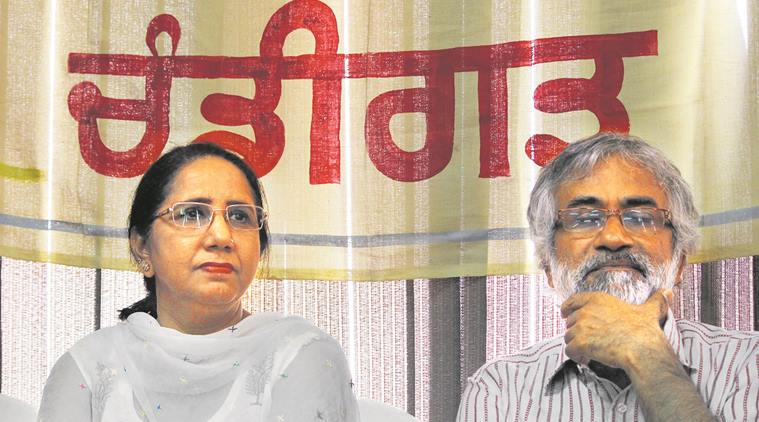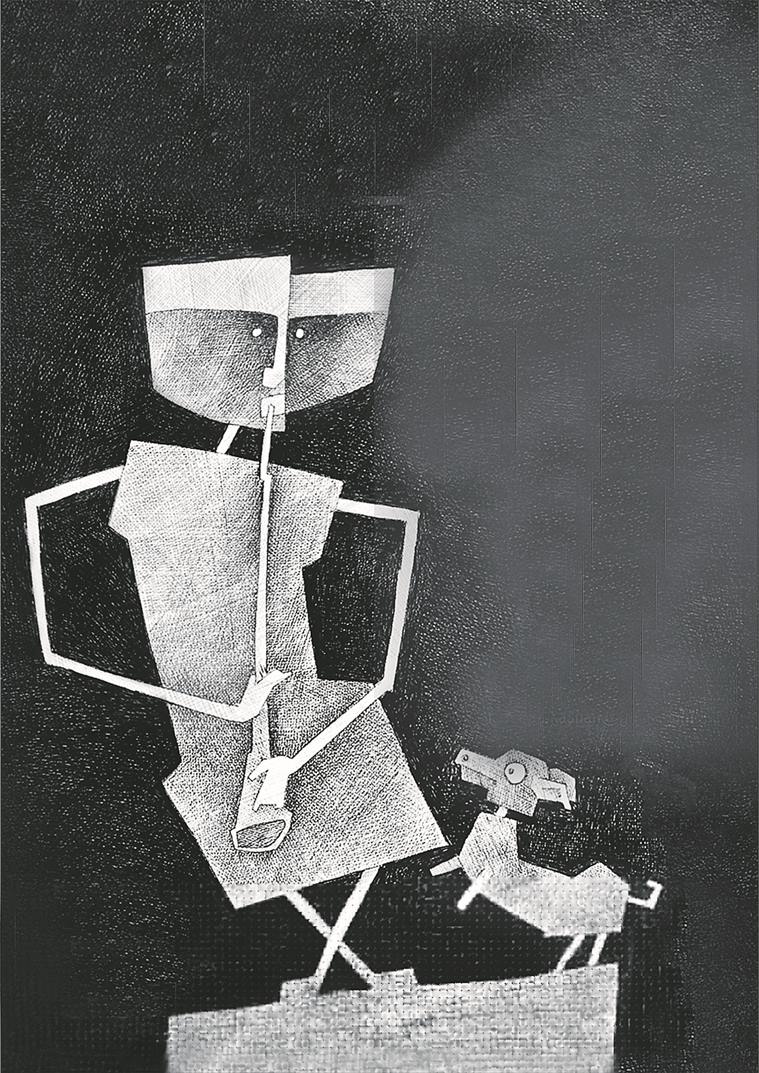
Translation is important to help us understand comparative views and how contemporary issues are being discussed in other languages. It was a fulfilling experience to translate Laltu’s anthology of poetry in Hindi, Chup Chap Attahas, into Punjabi,” says Jatinder Kaur, talking about Kya Behra Hua Khudaye, an anthology of poems that released this week.
A scientist, prolific poet, writer of fiction in Hindi and Bengali, grass-roots reformer and social commentator, Laltu is a professor at the Center for Computational Natural Sciences and Bioinformatics at IIIT, Hyderabad. His poems focus on social and political conditions of our times and human-centric development. Kaur teaches Punjabi at MCM-DAV College and has a PhD in poetry. She has translated several works from different languages into Punjabi. This, however, is the first time she has translated from Hindi into Punjabi. Poetry, Kaur feels, is often seen as soft, but she says this is only one aspect of the art form. She adds that poetry also portrays the ugliness of life, corruption, inequality and poverty. “Poetry, like prose, is also rational and logical. It has unlimited interpretations in different times and situations, portraying the demons inside us and the times we are living in,” says Kaur.

Kya Behra Hua Khudaye has 95 poems. It also talks about dictatorial forces. “It reflects how the human and humane side is killed due to fascist mentality. The poetry is not talking about Punjab or India but the rise of fascism across the world. Like Duryodhana, who knew he was doing wrong, but justified his actions, the oppressor wears many masks and lives the lies. Poetry looks at our times and makes us understand that we can resist and fight,” says she.
Kaur says, as a translator, for her the content and subject of the poetry is paramount, as that must not change. “Poetry becomes a historical document, as it questions the times and is a tool for resistance. The discourse of silence is powerful in this anthology. We need to tell the truth when it is most needed and that is what this anthology does. Poets are the voice of the suppressed,” she adds.